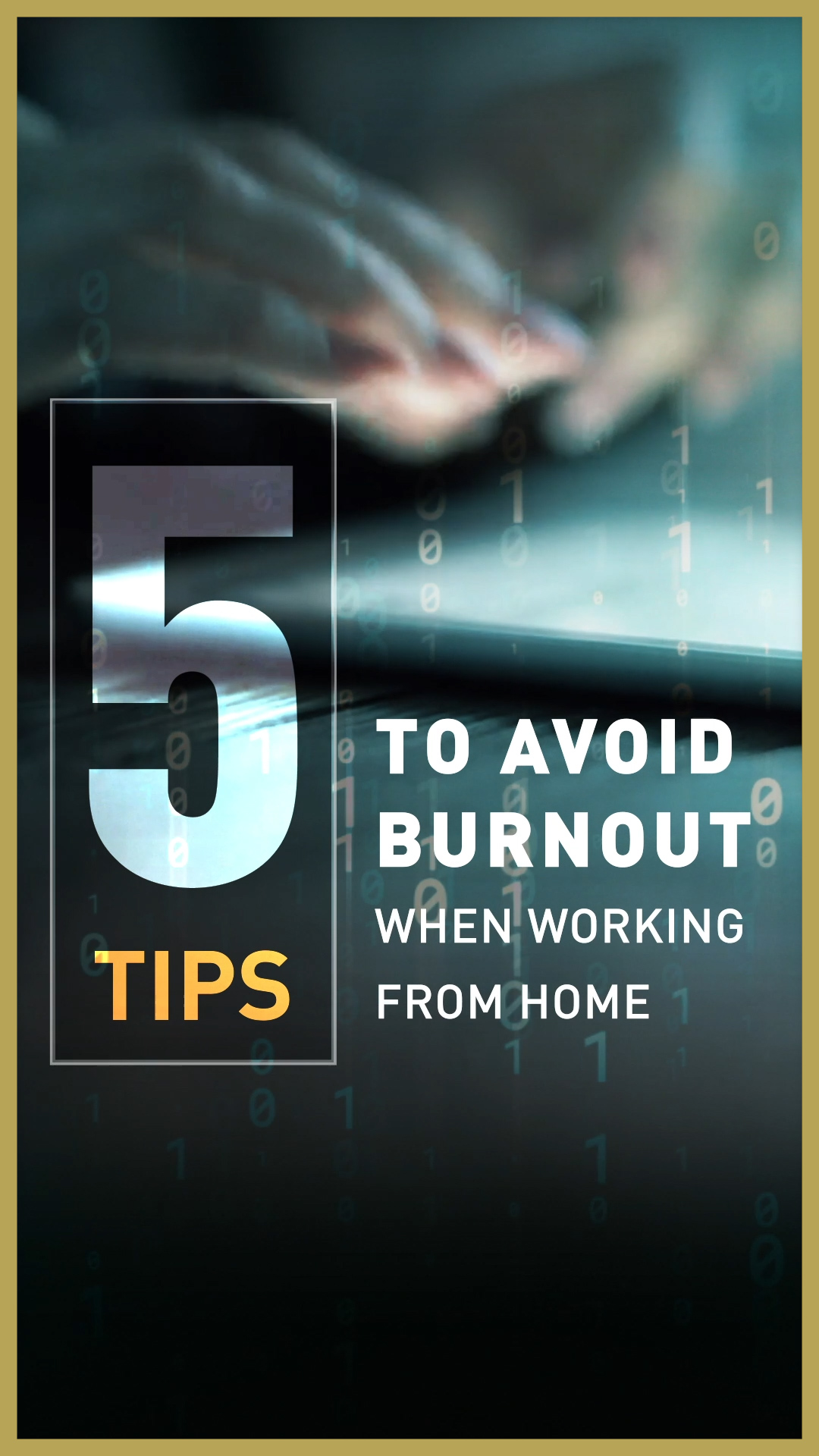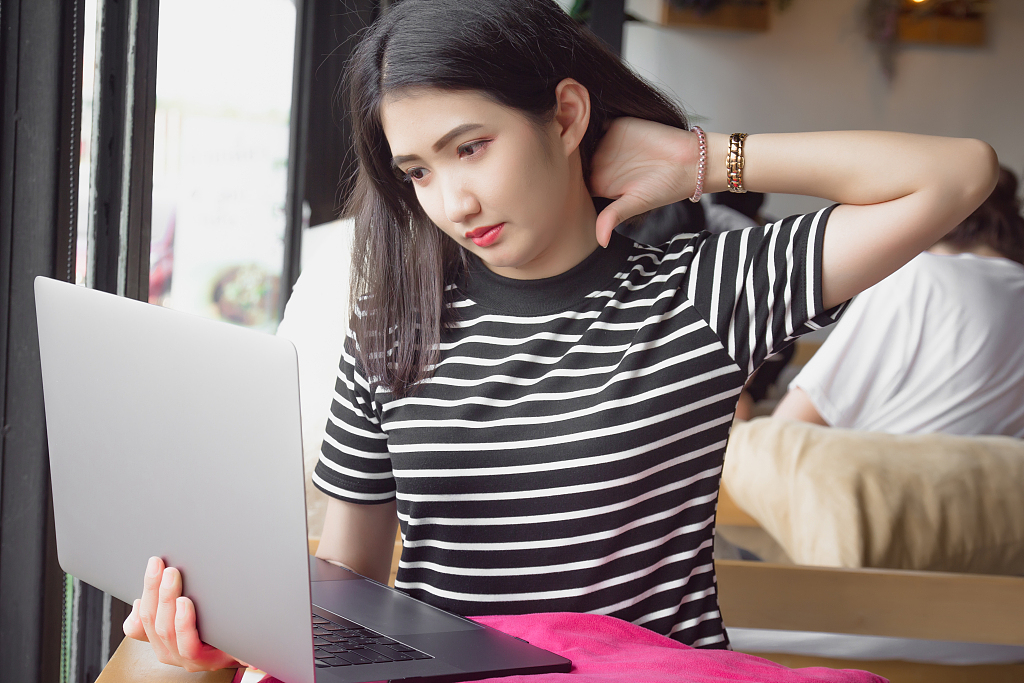03:22

Working from home has become the new normal for millions of people but there is a growing fear that the blurred lines between professional and personal lives could cause burnout.
When lockdowns were enforced at the start of the pandemic, many businesses shut down their offices and ordered their staff to work remotely, which turned homes into workplaces overnight.
While some workers have started to return to offices, many businesses have already confirmed their offices will remain empty until at least the start of next year.

A study has revealed that 37% of remote workers feel their mental health has suffered since they started working from home. /Rafal Rodzoch/CAIA
For some people, remote working has enabled them to save money and reduce stress caused by lengthy commutes, but others have struggled to navigate this new and often lonely digital world.
A study of 2,000 workers and 500 managers conducted by the Robert Walters Group, found that 37 percent of workers felt their mental health had suffered while working from home.
But how exactly can people relieve that stress and avoid mental burnout? Laurel Farrer, a remote working expert and CEO of Distribute Consulting, shares her top five tips to avoid burnout when working from home.
When you start working from home, that is now your responsibility to manage your own health, so make sure that you are getting up and moving on a regular basis
- Laurel Farrer, CEO, Distribute Consulting
1. Set personal boundaries
"Anything that you can do to create structure and boundaries for your work and to separate your professional time from your personal time will really help. So, for some people, that is creating a daily commute for themselves, like getting dressed and going for a walk and making a coffee and going into the home office. For other people, it's just a psychological separation, like in between work and personal time reading a chapter of a book that has nothing to do with work or doing a mindfulness activity or something like that."
2. Build digital relationships
"Social isolation is a very common concern for a lot of people who are new to remote work. But remember that your co-workers are only one part of your social network, so make an intentional effort to also build relationships in this new genuine way with your friends and family and loved ones as well. Talk to your neighbors. Talk to members of your community. Get in touch with that old friend and you'll be surprised at how quickly your heart and your life can be full of great relationships and lots of interactions even though you're not seeing them physically."

Taking regular breaks from screens and avoiding digital devices after work could help remote workers to relax and avoid burnout. /NopponTeddyPat
3. Create a routine
"Having some type of psychological trigger for your brain is very, very helpful, so it doesn't necessarily matter what time it is, but creating consistency for your brain that says, 'this is work time' and 'this is personal time,' will really help with that. So, like I said, if that's waking up at the same time and working the same hours, that's great. Or if it is going for a walk every single day before you start working, that's great, too, or whatever, like just creating some type of consistency, whether it's a habit or an item or a location or a time."
4. Manage your health
"You are legally required to take a break every certain number of minutes and to sit in a certain way at your desk with a certain height of laptop and certain type of chair, the room needs to be in a certain temperature etc... Your employer is taking care of that for you in a workplace, so when you start working from home, that is now your responsibility to manage your own health, so make sure that you are getting up and moving on a regular basis, because there are so many health and safety tactics and strategies that are neglected just because we don't know what we don't know."
5. Log off and shut down
"I personally find the best strategy is to counterbalance as drastically as possible. So, for me, even though often my evening time does include devices for that time period where I'm trying to unplug and reset my mind from work into life, I will counterbalance as much as possible by doing something that is the exact opposite of what I'm doing all day during my career. So typically, I go outside, I work with my hands. I'm talking to people in person. I'm high movement, I'm going outside of my home office."
 简体中文
简体中文

